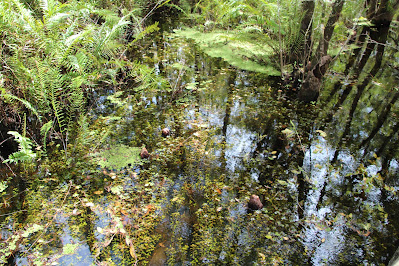There is an extraordinary true story about a woman called Corrie Ten Boom, a Protestant living in Holland during the Second World War. She lived with her sister and father and they used to read the bible every evening after dinner. During the war as Holland was occupied by the Nazis and Jewish people began disappearing, they ended up hiding people in their home, although they didn’t set out to do this. Eventually they were caught and sent to one of the concentration camps in Germany called Ravensbruck. Her sister and father both died there, but she survived and was eventually released. When she returned home she began working to help the many people who were so hurt by the war. She felt that God was calling her to speak about the need for forgiveness and so she did. She was invited to speak all over the country and in other countries.
While speaking in Germany one day, a man came up to her after her talk and thanked her for this message of forgiveness. He said, ‘It is good to know that Jesus forgives all our sins.’ She recognised him as one of the SS officers who had been in charge of their prison. As he extended his hand to her, she found herself freezing up and unable to respond, but she realised that if she did not forgive this man who was responsible for the death of her sister and father, all her preaching would be meaningless. So she found herself praying to God on the spot asking him to help her to forgive and she was finally able to put out her hand to him. The book is called The Hiding Place and it is an amazing story. She wrote: ‘And so I discovered that it is not on our forgiveness any more than on our goodness that the world’s healing hinges, but on His. When He tells us to love our enemies, He gives, along with the command, the love itself.’
Probably the greatest obstacle to God’s helping and healing us, is our refusal to forgive. When we refuse to forgive someone, we shut the door to God’s grace, we prevent God from healing us, but there is an important thing to remember about forgiving someone. Many people think that in order to forgive someone I must feel like forgiving them. In other words, the hurt has to have gone and so now I can forgive. That is not how it works. Forgiveness is not just a question of how I feel, or whether I feel like forgiving someone or not. Most of us when we are hurt, are often hurt for a long time, sometimes for years, and of course we don’t feel like forgiving. Sometimes the injustice is not even resolved. People are betrayed by loved ones, or cheated out of money. The deeper the hurt, the longer it takes to heal, but forgiveness is a decision of our will. We have to choose to forgive, regardless of how we feel. It doesn’t depend on whether we physically feel like doing it or not. ‘Lord I forgive this person because you ask me to’. When we do this, it doesn’t mean that all the hurt will instantly disappear, or that we are saying what happened doesn’t matter, but if we are prepared to do this much, then we open the door to allow God’s Spirit to begin to heal us. If I refuse to forgive, I am preventing God’s Spirit from helping me to heal.
We may think that by refusing to forgive someone we inflict some kind of revenge on them. The truth is that they may not even be aware of the hurt we carry. Refusing to forgive someone who has hurt us does not hurt them, it wounds us. The resentment becomes a poison within us, which festers. God wants to heal us and help us move on, but to do this we must be willing to forgive. It is not an easy thing to do, but we must try. That is why Jesus spoke about it so many times in the Gospels and in very strong terms. If we expect to be forgiven, we must also be prepared to forgive. I doubt that there is anyone here who does not need to forgive someone. If you find yourself angry at someone, it usually means that you need to forgive them. Maybe a good question to ask yourself when you find yourself angry with someone is this: if I was in their position, would I hope that the person I had hurt would forgive me?
Jesus used the parable of the unjust servant in Matthew 18:
“Therefore, the kingdom of heaven is like a king who wanted to settle accounts with his servants. As he began the settlement, a man who owed him ten thousand bags of gold was brought to him. Since he was not able to pay, the master ordered that he and his wife and his children and all that he had be sold to repay the debt. “At this the servant fell on his knees before him. ‘Be patient with me,’ he begged, ‘and I will pay back everything.’ The servant’s master took pity on him, canceled the debt and let him go.
“But when that servant went out, he found one of his fellow servants who owed him a hundred silver coins. He grabbed him and began to choke him. ‘Pay back what you owe me!’ he demanded.
“His fellow servant fell to his knees and begged him, ‘Be patient with me, and I will pay it back.’
“But he refused. Instead, he went off and had the man thrown into prison until he could pay the debt. When the other servants saw what had happened, they were outraged and went and told their master everything that had happened.
“Then the master called the servant in. ‘You wicked servant,’ he said, ‘I canceled all that debt of yours because you begged me to. Shouldn’t you have had mercy on your fellow servant just as I had on you?’ In anger his master handed him over to the jailers to be tortured, until he should pay back all he owed.
“This is how my heavenly Father will treat each of you unless you forgive your brother or sister from your heart.”
Note the last line. If we refuse to forgive others, the Father will not forgive us!
As a priest I meet many people near the end of their life. Most of them are at peace, having come through all the trials of their lives, but sometimes I meet someone who is bitter and full of resentment, angry with everyone and everything. They had been hurt, but they have refused to forgive and you can see how it has consumed them, destroyed them. It is a sad sight. People will hurt us, but we always have a choice to forgive them or not.
I am sure that all of us here expect that the Lord will forgive us. It’s what all the Gospels are about, it’s what we believe in and yet in no uncertain terms the Lord says, if you expect God to forgive you, you must be prepared to forgive others too. That’s how it works. Forgiveness is a decision of our will that we must make. Once we do this, then we open the door to begin to heal.
‘Forgive us our trespasses,
As we forgive those who trespass against us.’














